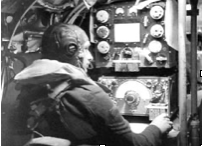Dr. Johnston’s Project
For years I heard the Honour Roll names ritually read out at campus Remembrance Day services, or passed by the tablet itself in Alumni Memorial Hall. Sometimes I idly wondered, with the exception of two cases, who and what they were, these former McMaster students and fellow alumni. One of the exceptions was John W. Yost whom I had known as an older and affable neighbourhood boy growing up in the Delta district of Hamilton’s east end. The other exception was Charles W. MacDonald who had been my teacher at Hamilton’s Memorial School. Being the inspired mentor that he was, he had made history an exciting subject for many of his pupils in the years before the war. One day I resolved to find out more about these two people, where they had served and in what capacity, and how they had died. Before long I took the next obvious step and decided to broaden the search, as best I could, to include the thirty-three others who share an honoured space with them in Alumni Memorial Hall. Thus began the project which so far has produced the biographies that follow.
Information Box Group


Family members willing to see their sons, fathers, husbands, uncles, brothers, cousins, and nephews remembered in this way, graciously provided the recollections and documentation that enormously helped the cause. In one productive case I was presented with the proverbial cigar box of old wartime letters, written by an air force navigator. In another, a tenderly cared-for binder was produced, containing descriptive, humorous, and astute letters from a young army officer serving in Italy. On other occasions I was loaned whole family archives or led to dining room or kitchen tables laden with such wartime memorabilia as diaries, postcards, photographs, flying logs, training notes, and newspaper scrapbooks. Soon enough I discovered that in every Honour Roll family I visited or corresponded with there was a diligent “keeper of the flame”, the person designated or self-appointed to preserve what has since turned out to be so essential for a project of this kind. Equally essential were the memories shared with me by friends, classmates, and teammates of those who had served and died.
I have also benefited from the absorbing interest in World War II itself. Many surviving veterans have understandably kept the flame too and they have been joined by a younger generation of professional historians devoted to Clio’s thriving branch known as military studies. The internet bears witness to this interest. There are numerous web sites concerned with individual military formations, which can readily be tapped by those seeking enlightenment. In the course of time an international network of committed researchers has grown up and created a living and accessible internet library of data and references. It has been matched in recent years by an outpouring of wartime reminiscences and memoirs in conventional print format, which along with a fresh crop of regimental and other unit histories have proved richly informative. Many of these publications draw, of course, upon the resources of those libraries and archives that abound in relevant materials.
Among those repositories that freely offered aid in my case were the National Archives of Canada, the Canadian Baptist Archives (CBA), housed in McMaster Divinity College, and Special Collections, McMaster University Library. The National Archives furnished military service records, war diaries, casualty investigation reports, and other vital documentation. The CBA, through the good offices of its congenial archivists, Kenneth Morgan and Mark Steinacher, made available McMaster student records, biographical files, and related documents, which often included informative correspondence and student assessments. The equally congenial and co-operative Kathleen Garay, Carl Spadoni, and Sheila Turcon at Special Collections provided access to student yearbooks and other helpful campus publications. In addition, a number of other university, college, and school libraries and archives opened their doors and released key information. A more specific acknowledgment of the assistance received from these and other sources and repositories is appended to each biography.
I am also indebted to Susan Welstead of the University Secretariat Office and to Karen McQuigge and Greg Restivo of the Alumni Office. Among other forms of welcome and cheerfully offered help, they were instrumental in having the Honour Roll biographies placed on the alumni website.
Charles M. Johnston
Professor Emeritus of History
** Arguably the Great War Honour Roll should have been investigated first, if only to satisfy chronology. There are two reasons for my not doing so, though admittedly I run the risk of having them judged inadequate. In any event, first of all, in the case of World War II there are still extant, thanks to longevity and luck, eyewitnesses and people with first-hand recollections who can be interviewed for the vital information that often helps to illuminate the documentary record. Alas, given the inexorable passage of time, this does not hold true for the more remote Great War generation. Secondly (and possibly more selfishly), I had some memories of my own to bring to bear on the reconstruction of events during the fateful 1940s. Should time and the fates permit, however, once the World War II biographies are completed, the investigation, bound to be almost exclusively archival, will turn to those McMaster people who fell in the Great War.
